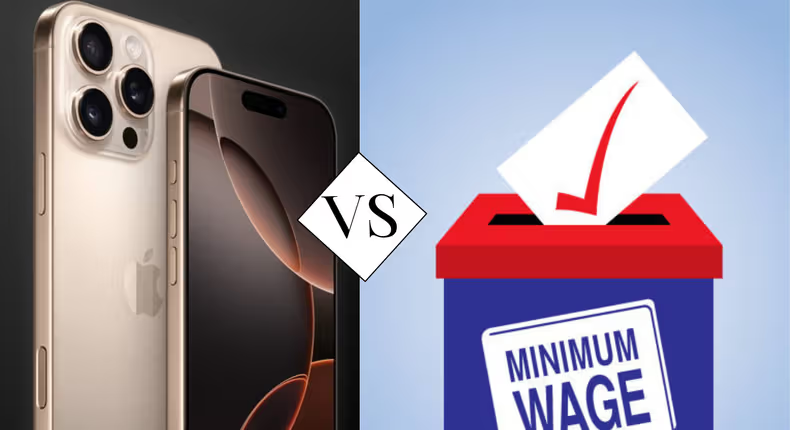Apple has announced the new iPhone 16 series, including the iPhone 16, iPhone 16 Plus, iPhone 16 Pro, and iPhone 16 Pro Max, with pre-orders starting on September 13, 2024, and general availability from September 20, 2024. The standard iPhone 16 starts at $799 (₦1.3 million at ₦1,640/$). Here’s a look at how this price compares to the minimum wage in various African countries:
Estimated Wait Time for iPhone 16
| Country | Minimum Wage ($) | Estimated Wait Time |
|---|---|---|
| Seychelles | $465.4 | 2 months |
| Libya | $321.8 | 2 months |
| Morocco | $314.7 | 2 months |
| Gabon | $270.5 | 3 months |
| Equatorial Guinea | $211.54 | 4 months |
| Algeria | $140.14 | 6 months |
| Cape Verde | $139.46 | 6 months |
| Kenya | $130.37 | 6 months |
| Mozambique | $113.8 | 7 months |
| Lesotho | $109.62 | 7 months |
Nigeria
- Old Minimum Wage: ₦30,000 ($18.18) — Approximately 4 years of minimum wage required.
- New Minimum Wage: ₦70,000 ($42.42) — Approximately 18 months of minimum wage required.
Summary
In African countries with higher minimum wages like Seychelles, Libya, and Morocco, the iPhone 16 is more accessible, requiring just about two months of minimum wage. Conversely, in countries with lower minimum wages such as Mozambique and Lesotho, it would take up to seven months of minimum wage to afford the iPhone 16.
In Nigeria, workers on the old minimum wage would have to wait nearly four years to afford the iPhone 16, whereas the new minimum wage will reduce this to around 18 months.
This comparison highlights the significant impact of economic conditions and purchasing power on the affordability of high-end gadgets in different regions.

